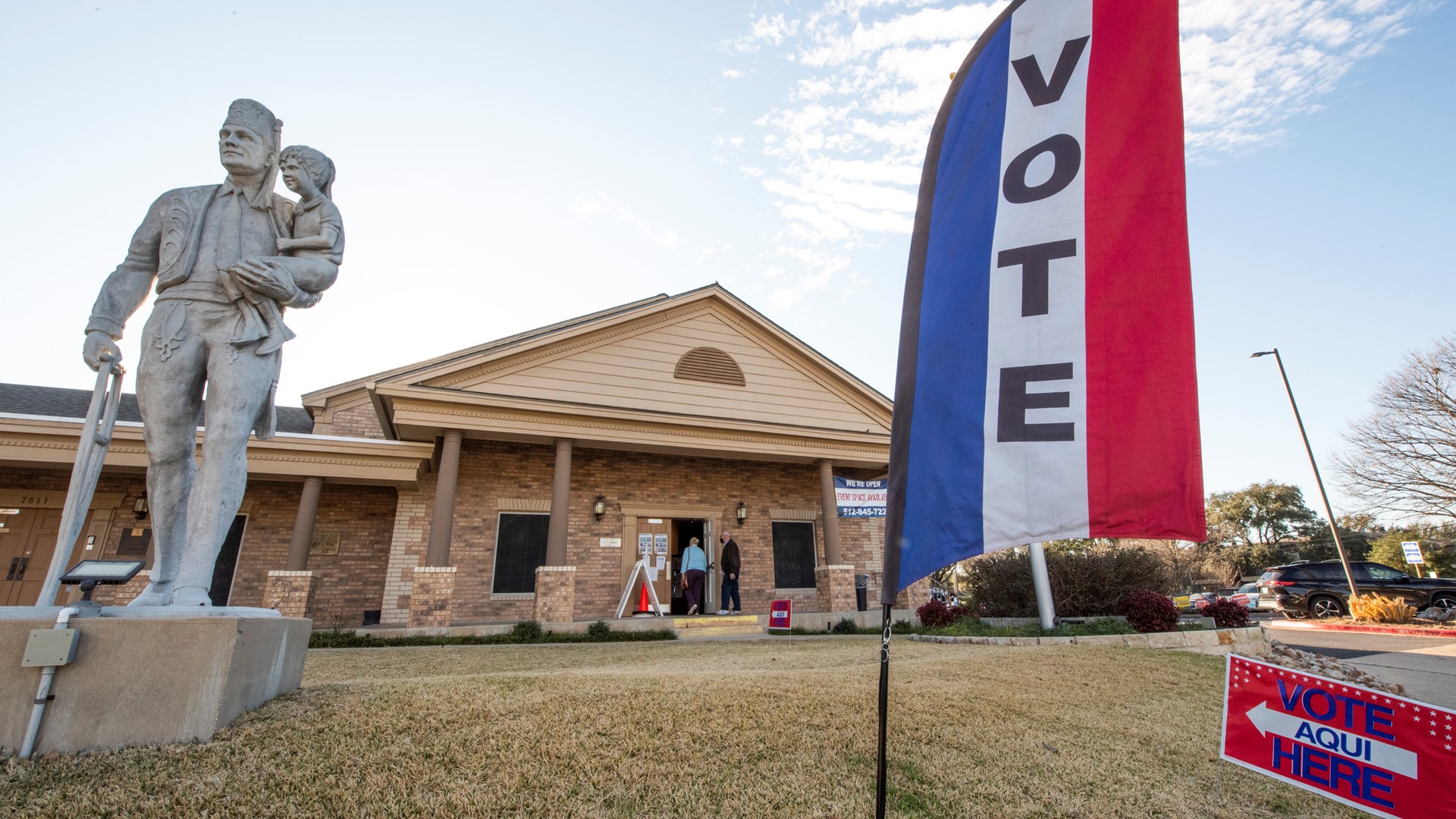AUSTIN, Texas — This May 7 special election, all Texans had the opportunity to vote on two propositions to amend the Texas Constitution. We’re taking a look at the election results.
Proposition 1 and Proposition 2 were both related to property tax relief. Specifically, voters had to decide on reducing the limitations on the total amount of ad valorem taxes for public school purposes and increasing homestead exemption amounts.
Election results for Proposition 1, Texas constitutional amendment
Voters had the option to vote “yes” or “no” on Proposition 1 and, around 87% of voters voted to approve the measure..
Here is how the State of Texas Proposition 1 appeared on voters' ballots:
"The constitutional amendment authorizing the legislature to provide for the reduction of the amount of a limitation on the total amount of ad valorem taxes that may be imposed for general elementary and secondary public school purposes on the residence homestead of a person who is elderly or disabled to reflect any statutory reduction from the preceding tax year in the maximum compressed rate of the maintenance and operations taxes imposed for those purposes on the homestead."
It's a mouthful. Let’s explain what it means.
In Texas, once you turn 65, your school taxes are capped at whatever you paid in that year. If you are over 65 or are disabled, your school taxes are capped.
In 2019, the Texas Legislature passed an initiative that started to push school tax rates down.
This amendment extends tax relief to those who are capped by letting their tax bills go down as school tax rates go down, according to Dale Craymer, the president of the Texas Taxpayers and Research Association.
Election results for Proposition 2, Texas constitutional amendment
Voters had the option to vote “yes” or “no” on Proposition 2 and, around 85% of voters voted to approve the measure.
Here is how the State of Texas Proposition 2 appeared on voters' ballots:
"The constitutional amendment increasing the amount of the residence homestead exemption from ad valorem taxation for public school purposes from $25,000 to $40,000."
As opposed to Prop 1, this proposition applies to all homeowners and offers property tax relief to all. Prop 2 increases the current homestead exemption.
Currently, the homestead exemption exempts $25,000 of what your home is valued at, so you’re only taxed on the remaining value. For example, if your home is valued at $400,000, you’re only taxed on a value of $375,000.
Proposition 2 increases the exemption to $40,000, which would mean that in this example, you would instead be taxed on a value of $360,000.
According to the president of the Texas Taxpayers and Research Association, this means that the average homeowner’s tax bill would be about $180 less starting in October.
Will these Texas propositions hurt school districts?
Because public schools are largely funded through property taxes, you may be wondering if these propositions will decrease funding to school districts in Texas.
Craymer said they would not harm schools in any way.
“Schools are basically guaranteed a certain dollar amount of funding per student in our school finance formulas,” he previously told KVUE. “And should these propositions pass, the state will make that money up through the formulas. It's not going to result in any loss of revenue to our schools.”
To learn more about the state constitutional propositions, click here.
KVUE is tracking election results across Austin and Central Texas. See election results in real-time for the May 7 special election.
PEOPLE ARE ALSO READING:

